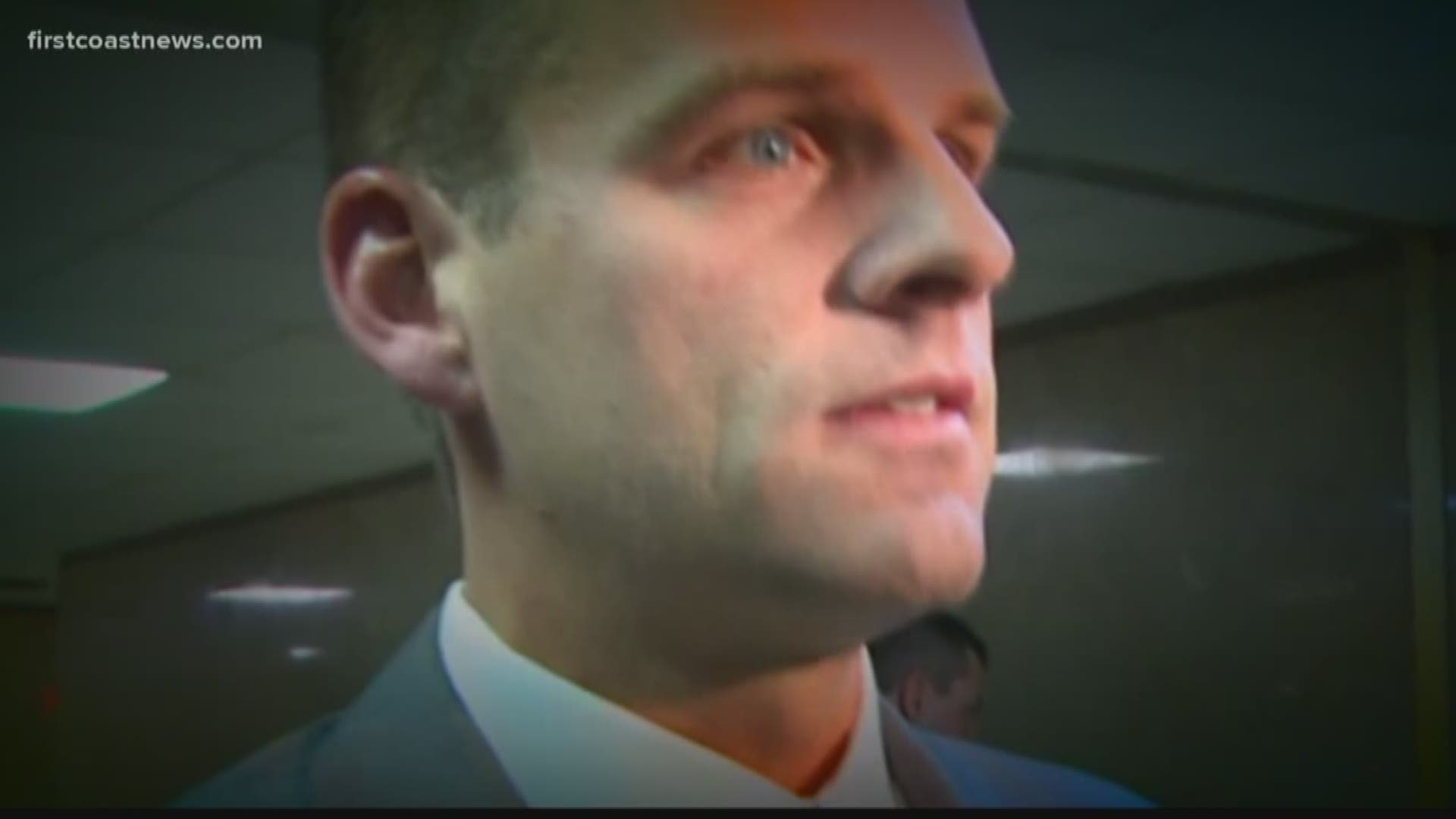Former Public Defender Matt Shirk wants to force Cristian Fernandez, who faced adult murder charges at 12 years old, to testify Friday in the attorney’s ethics case, even though an expert says doing so could hurt Fernandez’s recovery.
The administrative hearing is part of the state ethics commission’s investigation into Shirk’s potential violation of attorney-client privilege.
For more than three years, Shirk has delayed the Florida Commission on Ethics from acting on three complaints against him. The violation of attorney-client privilege is one of three complaints he faces from the commission.
In 2011, Shirk took Fernandez’s case where the young boy was accused of murdering his half-brother and could have faced a life sentence in adult prison. Fernandez, with a new team of lawyers, later pleaded guilty to manslaughter and received juvenile sanctions.
In a pre-hearing motion, he said the only witness he wants to call is Fernandez, who is now 20, but the commission’s advocate, Elizabeth Miller, wrote Monday that a psychologist said it would seriously hurt Fernandez’s recovery from trauma if he testified.
“As Fernandez’s counsel, [Shirk] saw a need to protect young Fernandez’s welfare,” Miller wrote. “The need to protect his welfare continues today. Fernandez is a non-essential witness, thus, there is no reason to expose him to potential emotional trauma through yet another appearance in a judicial setting. The bottom line is that Fernandez should not be required to participate in this litigation. The probability of detriment to Fernandez’s well-being outweighs the probability of any meaningful assistance to Respondent.”
She also said it wasn’t necessary to force Fernandez to testify. She noted that Fernandez’s guardian ad litem, along with Fernandez’s doctors and lawyers, will be available for Shirk to question. The guardian, she said, would be best equipped to say if the pre-teen defendant was capable of understanding what was happening in his case.
Shirk has admitted guilt to the other two complaints — that he illegally hired and fired women based on their physical appearance and that he illegally drank and served alcohol in the office. He has also previously admitted guilt to the violation of attorney-client privilege as part of a prior settlement agreement that was rejected by the ethics commission. Shirk has since changed his stance and now insists he’s innocent.
Shirk had never handled a murder case before. Both the Florida Commission on Ethics and a grand jury found Shirk probably violated attorney-client privilege when he talked openly about Fernandez’s murder case. Shirk continued talking even after he had been removed from the high-profile case.
“During the criminal proceedings, young Fernandez was surrounded by chaos,” Miller wrote based on the psychologist’s opinion. “He has served his time and is trying to move on. It has been a difficult road and would be a potential set-back for him to be asked to sit in a courtroom again and to unnecessarily re-live events.”
Shirk has previously argued that Fernandez agreed to waive attorney-client privilege, even though the boy was 12 years old and a judge ruled that he didn’t understand his rights and Shirk never got Fernandez to make the waiver in writing. Fernandez’s guardian ad litem also said, according to Miller, that “due to Fernandez’s disabilities based on youth and mental state, he was incapable of waiving his privileges and rights.”
Fernandez, who is still serving a probation sentence requiring that he continue treatment while he remains employed or a student, grew up in tragedy. His mother was 12 years old when she had him. His stepfather molested Fernandez and then killed himself in front of some of his children.
Though Shirk was voted out of office by a three-to-one margin in 2016, he has faced no discipline despite numerous Florida Bar complaints and the ethics commission investigations.
He has agreed to settlements with the ethics commission multiple times, but he has either changed his mind or on one case the commission rejected the settlement as too weak. The commission’s advocate has repeatedly rescheduled hearings that would determine his guilt.
An administrative law judge will decide if Shirk violated the state’s ethics law, and if he did, then he could face up to $10,000 fines for each of the three complaints. The ethics commission will decide the penalty.
City Councilman Matt Carlucci, who was previously the chairman of the ethics commission, in 2017 rejected a settlement where Shirk would admit guilt to all three complaints but pay only $2,500. At the time, Carlucci called the proposed settlement “weak,” and said, “it’s just my opinion that $2,500 and a reprimand does not measure up to the ill repute that he cast upon this public office.”
It’s possible Shirk’s latest request could again delay action if an administrative law judge decides he needs more time to decide if Shirk can make Fernandez testify.

